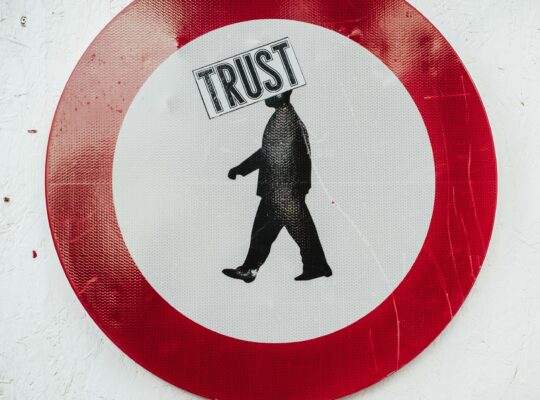Ever had a moment when you suddenly feel like you’re about to explode, but you’re not sure why? Or when a small comment completely ruins your day? That’s likely an emotional trigger at work. In simple terms, an emotional trigger is something that stirs up strong, often overwhelming emotions—usually linked to past experiences. It’s normal to get triggered, but understanding why it happens can help you take control of your emotions and handle them better.
What Are Emotional Triggers?
Think of emotional triggers like alarms that go off in your brain. These alarms are linked to feelings from past events—sometimes from childhood, other times from more recent experiences. When you encounter a situation similar to those past moments, your brain fires up and makes you feel something intense, like anger, sadness, anxiety, or frustration.
For example, maybe someone’s criticism makes you feel worthless because you’ve had experiences where you felt judged in the past. Or maybe, a disagreement with your partner immediately triggers feelings of abandonment, bringing up memories of being ignored in the past. The important thing to remember is: emotional triggers are connected to past feelings that haven’t been fully processed. And while they feel intense, they are manageable.
Why Identifying Triggers Is So Important
Identifying your emotional triggers is like getting a map to your own emotional landscape. Once you know what sets you off, you can start responding in a healthier, more mindful way. You won’t just react blindly. Instead, you’ll recognize the feeling and choose a more thoughtful response.
More aware we are of our emotional triggers, the better we can manage them. According to Daniel Goleman, the author of Emotional Intelligence, self-awareness is a huge part of emotional regulation. Once you know what’s triggering you, you can act instead of react.
Common Emotional Triggers
Everyone has their own unique set of emotional triggers. Here are some common ones that many of us can relate to:
- Criticism or judgment: Whether at work or in personal life, criticism can trigger feelings of insecurity or inadequacy.
- Rejection or abandonment: Situations where you feel excluded or left behind can trigger deep fears of being unimportant or unloved.
- Feeling helpless or out of control: This can come from overwhelming situations where you feel like things are spiraling and you can’t manage them.
- Conflict or anger: Arguments—especially heated ones—can often bring up old wounds, like unresolved family issues or feelings of being unheard.
How to Identify Your Emotional Triggers
Okay, now that we know what emotional triggers are, how do we identify them? Here’s the deal—being self-aware is key, and it takes time. So, grab your favorite notebook or open a new document on your phone, and let’s start:
- Notice the Feelings
When you feel intense emotions, pause for a moment. Ask yourself, Why am I feeling this way? Are there physical sensations, like tightness in your chest, that accompany these feelings? Being present with your emotions helps you understand what’s happening beneath the surface. - Reflect on Past Events
Take a look at past experiences that caused intense emotional reactions. Did something similar happen to you before? Sometimes, the situation you’re reacting to is a mirror of an old experience. Reflection helps you see if this is a recurring theme in your life. - Track Your Emotions
Keeping a journal can be an absolute game changer. Write down the moments when you feel triggered, and track the details. What happened? How did you feel? Over time, you’ll start to see patterns, and that’s when the magic happens—you’ll start identifying your triggers. - Ask for Feedback
Sometimes, the people around you can help you see your triggers more clearly. They may notice patterns in your reactions that you can’t see yourself. This can help you get a fresh perspective on your emotional responses.
What to Do Once You Know Your Triggers
Once you have figured out your emotional triggers. Now what? It’s time to take control of them. Here’s how:
- Practice Grounding Techniques
When you feel triggered, try grounding yourself. Focus on your senses—what can you see, hear, or smell around you? Grounding brings you back to the present moment and helps you pause before reacting. - Challenge Your Thoughts
Emotional triggers often come with a negative thought spiral. For example, if you get criticized at work, you might think, I’m a failure. Instead of accepting these thoughts, challenge them. Ask yourself: Is this really true? What’s another perspective? Shifting your mindset can prevent you from getting stuck in your feelings. - Set Boundaries
If certain situations or people consistently trigger you, setting healthy boundaries is essential. Boundaries can be simple, like saying, “I need a moment to process this” or “I’d rather not discuss this right now.” Protecting your emotional space can prevent future triggers. - Talk to a Therapist
If you find yourself struggling with emotional triggers that stem from past trauma or unresolved issues, it might help to talk to a professional. Therapists can help you explore these triggers in a safe, supportive environment and teach you coping techniques.
Accept Your Emotions
Identifying your emotional triggers is a big step toward understanding yourself better. It’s okay to feel triggered—remember, emotions are natural and they don’t have to control you. By being mindful of your triggers, practicing self-awareness, and taking intentional steps to regulate your emotions, you can build emotional resilience. And that’s a superpower we all deserve.
So, take a deep breath, reflect, and show yourself some love. It’s all part of the journey toward emotional growth.
What are some of your emotional triggers? How have you worked to manage them? Share your thoughts in the comments below, and let’s support each other in this process!








Baddiehub You’re so awesome! I don’t believe I have read a single thing like that before. So great to find someone with some original thoughts on this topic. Really.. thank you for starting this up. This website is something that is needed on the internet, someone with a little originality!